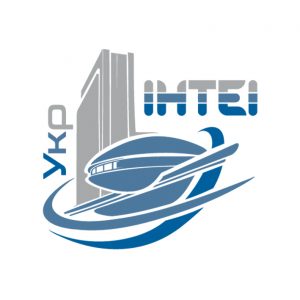Parkhomenko O.V. — PhD in Economics, Associate Professor, Doctoral Candidate of Kyiv National Economics University named after V. Hetman, 54/1, Peremogy Av., Kyiv, Ukraine, 03680; +38 (061) 220-95-85; pav_ua@i.ua
Parkhomenko V.D. — Doctor of Science in Engineering, Professor, Senior Researcher of Ukrainian Institute for Scientific, Technical Expertise and Information, 180, Antonovychа Str., Kyiv, Ukraine, 03680; +38 (044)521-00-50; iiv1director@gmail.com
INFORMATION AS A NATURAL CATEGORY AND ITS RELATIONSHIP WITH KNOWLEDGE
Abstract. Information and knowledge are the most important factors of social and economic development. There are a lot of research on their definition, but there are still many unresolved issues. Proved that information from the perspective of its value, use of social and economic processes and human activity can be considered as the natural category. “Information” and “Knowledge” categories in the systemic relationship are as a dialectical system. The application of systems approach to understanding the essence of “Information” and “Knowledge” categories can explore the internal relationship of the system “Information — Person — Knowledge” with other complex systems that operate in society. A new approach to the interpretation of the category “Information” could facilitate the adoption of a new law that regulates relations in the information sphere, in particular, by identifying information about persons, objects, facts, events, phenomena and processes, regardless of their form of expression and list areas where this information exists.
Keywords: information, knowledge, synergy, individual and social information, applied and fundamental knowledge.
REFERENCES
1. Malyshev O.V. (2017) Vidmova vid paradyhmy DIKW na koryst obernenoi “piramidy” [The rejection of the DIKW paradigm in favor of the converted “pyramid”]. Nauka, tekhnolohii, innovatsii [Science, technologies, innovations], no. 1, pp. 6–13.
2. Romer P. (1986) Rastushchij oborot pribylej i dolgosrochnyj ehkonomicheskij rost [Rising turnover profits and long-term economic growth]. Voprosy politicheskoj ehkonomii [Questions of political economy], no. 94, pp. 1002–1011.
3. Lopatin V.N. (2000) Informatsionnaya bezopasnost Rossii: Chelovek. Obshchestvo. Gosudarstvo [Information Security in Russia: Human, Society State]: SPb. Fond “Universitet”, pp. 428.
4. Kastel’s M. (2000) Informatsionnaya epokha: ekonomika, obshchestvo, kul’tura [Information Age: Economics, Society, Culture ]. Moscow (in Russian): State University Higher School of Economics, pp. 606.
5. Uebster F. (2004) Teoriya informatsionnogo obshchestva [Theory of Information Society]. Moscow (in Russian): Aspekt Press, pp. 400.
6. Chursin N.N. (1982) Populyarnaya informatika [Popular Computer Science]. Kyiv (in Ukrainian): Tekhnika, pp. 158.
7. Shennon K. (1963) Rabota po teorii informacii i kibernetiki [Information theory and cybernetics work]. Moscow (in Russian): Izdatelstvo inostrannoj literatury, pp. 19.
8. Nizhegorodtsev R.M. (1998) Teoreticheskiye osnovy informatsionnoy ekonomiki [Theoretical Foundations of the Information Economy]. Vladikavkaz (in Russian): Proyekt — Press, pp. 248.
9. Ekonomicheskaya informatsiya. Metodologicheskiye problemy [Economic information. Methodological problems] (1974) [ed. E.G. Yasinova]. Moscow (in Russian): Statistika, pp. 231.
10. Anokhin P.K. (1973) Printsipy sistemnoy organizatsii funktsiy [Principles of the system organization of function]. Moscow (in Russian): Nauka, pp. 190.
11. Skolenko A.K. (2002) Globalnyye rezervy rosta. Kyiv (in Ukrainian): Intellekt, pp. 427.
12. Zakon Ukrainy “Pro informatsiiu” № 2658-XII vid 02.10.1992 r. [The Law of Ukraine “On information” no. 2658-XII 02.10.1992]. Vidomosti Verkhovnoi Rady Ukrainy [Supreme Council of Ukraine], 1992, no. 48.
13. Stiven R. Kovi (2001) Sem navykov vysokoeffektivnykh lyudey [The 7 Habits of Highly Effective People]. Lviv (in Ukrainian): Svit, pp. 452.
14. Glushkov V.M. (1986) Kibernetika. Voprosy teorii i praktiki [Cybernetics. Theory and practice]. Nauka, pp. 488.
15. Stepanova T.E., Manohina N.V. (2008) Ehkonomika, osnovannaya na znaniyah (teoriya i praktika): uchebnoe posobie [Economy based on knowledge (theory and practice): a tutorial]. Moscow (in Russian): Gardariki, pp. 238.
16. Parhomenko О.V. (2008) Teoretychni osnovy systemy “informatsiiaznannia” [Theoretical foundations of “information- knowledge”]. Kyiv (in Ukrainian): Ukrainian Intellectual Property Research Institute, pp. 172.
17. Emoto M., Flige Yu. (2007) Istselyayushchaya voda. Informatsiya — vibratsiya — materiya [Healing water. Information — vibration — matter] [trans. from German]. Moscow (in Russian): Sofiya, pp. 112.
18. Parhomenko V.D., Parhomenko A.V. (2007) Informaciya i znaniya: sovremennye predstavleniya, vnut- rennyaya vzaimosvyaz’ [Information and knowledge, modern representations, the inner relationship]. Informaciya i innovacii [Information and Innovations], no. 4. pp. 4–14.
19. Porev S.M. (2012) Universytet i nauka. Epistomatolohiia, metodolohiia i pedahohika vyrobnytstva znan: monohrafiia [University and science. Epistomatology, methodology and pedagogy knowledge production: monograph]. Kyiv (in Ukrainian): Khimdzhest, pp. 384.
20. Drucker P.F. Post-Capitalist Society. Oxford: Butterworth Heinemann, 1993.
21. Parkhomenko O.V., Parkhomenko V.D. (2017) Informatsiino-znanievyi pidkhid do vyznachennia paradyhmy sotsialno-ekonomichnoho rozvytku [Information and the knowledge based approach the determination of the paradigm of socioeconomic development]. Nauka, tekhnolohii, innovatsii [Science, technologies, innovations], no. 1, pp. 13–20.

